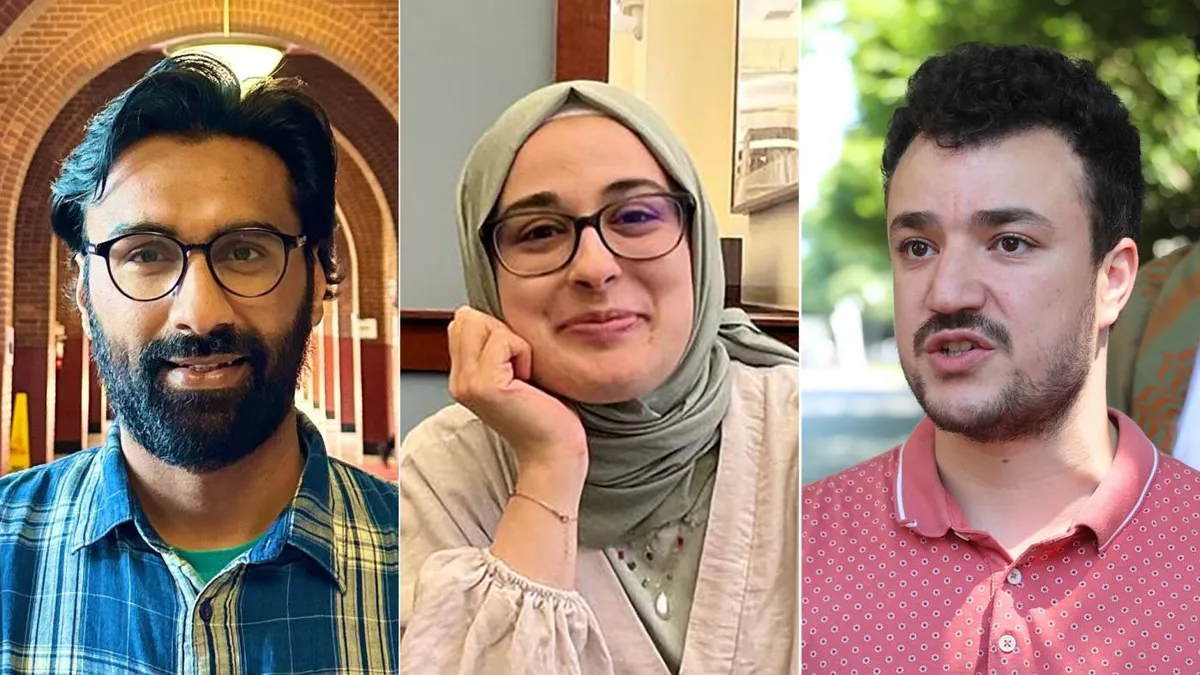
On March 8, Mahmoud Khalil, a graduate student at Columbia University, was arrested by immigration agents at his New York apartment after dinner with his wife and friends. The very next night, he found himself in a remote detention center in Louisiana, nearly three hours from the nearest city. Similarly, Tufts student Rumeysa Ozturk was picked up off the street near Boston, only to be transferred to a private prison in rural Louisiana less than a day later. Another academic, Badar Khan Suri from Georgetown University, faced a similar fate, being arrested near Washington, DC, and subsequently moved to a detention facility in Texas.
The arrests of these students and scholars are part of a broader initiative by the Trump administration to deport pro-Palestinian activists. These individuals have been transported to detention centers located over a thousand miles away, often despite their lawyers' efforts to contest such actions. Advocates have described these facilities in Louisiana, Texas, and Mississippi, which host 14 of the 20 largest immigration detention centers in the U.S., as "black holes" where detainees endure deplorable conditions.
The recent actions of Immigration and Customs Enforcement (ICE) have drawn attention to Louisiana's significant role in the detention process since Donald Trump's administration. The state has become a focal point for immigrant detention, raising concerns about a practice known as forum shopping. This strategy allows the government to have deportation cases heard in more conservative courts, a tactic that advocates for the detained have criticized.
In court documents, government lawyers claim that the transfer of Khalil, Khan Suri, and Ozturk to Louisiana was due to a lack of available beds in facilities closer to their arrest locations. However, a federal judge questioned this assertion during a hearing regarding Ozturk's case. She noted that there were available beds approximately 100 miles away at an ICE facility in Maine at the time of her arrest. Furthermore, Khan Suri, who is currently held at the Prairieland Detention Center in Texas, is reportedly sleeping on the floor due to the absence of available beds.
The ACLU of Virginia's legal director, Edith Heilman, emphasized the alarming nature of these transfers, suggesting there is a deliberate effort to remove individuals from their home states. ACLU attorney Brett Kaufman highlighted that relocating detainees far from their communities and legal representatives significantly hinders their ability to contest deportation efforts. This distancing not only complicates legal access but also exacerbates the emotional toll on detainees and their families.
Legal experts have pointed out another potential advantage for the government in transferring detainees to Louisiana. Several of the arrested academics have filed federal challenges against their arrests, and if their cases are heard in Louisiana, appeals would likely land in the Fifth Circuit court of appeals, known for its conservative stance. Amanda Frost, a law professor at the University of Virginia, remarked that had the Fifth Circuit been more liberal, the government would likely not have moved the cases there.
Khalil, who is a lawful permanent resident of Palestinian descent born in Syria, initially faced arrest in New York before being moved to New Jersey. The government has argued that his lawsuit challenging the arrest should be heard in Louisiana, but a federal judge ruled it will be heard in New Jersey, a decision the government plans to appeal. Likewise, Ozturk’s case was ruled to be heard in Vermont, while Khan Suri’s legal team is advocating for his case to remain in Northern Virginia.
All of these cases involve accusations against the government for violating the constitutional rights of the academics involved. While their legal battles against the Trump administration progress, the government continues its efforts to deport them. Khalil is set to appear before an immigration judge in Louisiana shortly, facing the possibility of having his green card revoked based on claims that his pro-Palestinian activism is linked to terrorism. His legal team argues that these charges are unfounded, lacking any substantial evidence.